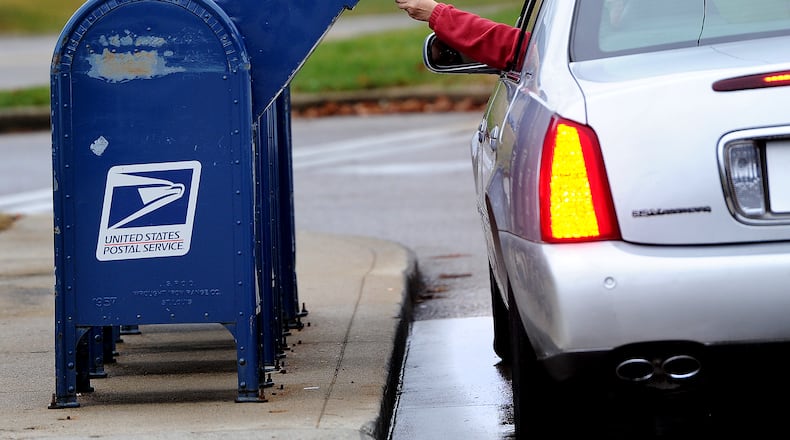The news came as no surprise to United Senior Services of Springfield. The agency has been warning members to weigh the risks involved in relying on checking accounts as a primary resource for bill paying. It is part of the organization’s effort to protect senior citizens from falling victim to criminal exploitation.
USS Executive Director Maureen Fagans said for people over 60 who have long relied upon checking as a safe and secure method of financial transactions, it’s a huge shift.
“Many things are completely the opposite of the way they were raised,” Fagans observed. “Cash was king then, checks were a safe way to do your bill paying and banking. Now we’re all being told ‘Don’t write a check’ because it’s so easy to trace it. All of your account information is right there. It’s easy to change the amount or account information and drain your account.”
“Check washing” is accomplished by people who steal checks and use chemicals to remove the original ink and replace the information with new amounts. They can also copy and reprint a single check to create a forgery for future disbursements or to sell to third-party criminals.
The growth in the scheme correlates to increasing reports of U.S. mail theft. United Postal Service blue collection boxes, residential mailboxes and theft from commercial building mailboxes have all been increasing as criminals collect and steal checks for criminal activity.
Once washed, checks can be rewritten to replace the “payment to” information with their own identity or with business accounts they maintain, increasing the amount by hundreds to thousands of dollars. A victim in a recent check washing scheme reported in a related story in the AARP Bulletin said the check written on his account looked perfect.
“They took every bit of ink out except my signature,” the victim said.
In some instances, criminals access banking accounts and then supply other criminal buyers with the size of bank account balances and Social Security numbers of the owners, allowing electronic manipulations of accounts to extract more money. Armed with such banking information, they can also take out loans and set up lines of credit in the name of the victim.
“You have to protect your assets,” Fagans said.
To do so, you need to monitor your bank and credit card activity to catch any illegal activity quickly. Watch for unauthorized charges to credit cards or missing cash, as well as unauthorized withdrawals from your bank account.
For someone who is not tech savvy, Fagans suggested having a trusted family member or friend as a second set of eyes on accounts to help identify suspicious activities.
The Treasury Department has also alerted financial institutions to watch for red flags indicating someone is being victimized. Among the activities considered warning signs:
- Uncharacteristically large withdrawals on an account by check to a new payee
- Customer complaints about a check they mailed that was never received by the intended recipient
- A change in the type of check stock used in conjunction with an account
- Sudden unusual electronic deposits, withdrawals and transfers of funds on accounts
- The creation of a new account that is exclusively used for the deposit of checks and frequent withdrawals and transfers of funds.
In addition to closely monitoring banking and credit card account, USS officials suggest further protecting yourself from becoming a victim by:
- Reducing the number of checks written by shifting to online bill payment with reliable encrypted accounts
- Shredding documents containing personal information
- Avoiding carrying unnecessary personal information (such as a social security card) in your wallet or purse
- Being aware of callers with whom you are unfamiliar who ask for personal information, including banking or financial information or social security numbers
- Using the post office’s inside drop boxes to send outgoing mail and not allowing delivered mail to sit in your mailbox. Collect it promptly every day, and if you will be gone, have it held at the post office until your return or have a neighbor or family member pick it up to hold for you until you get back.
Victims should report incidents as quickly as possible to protect themselves from further financial damage by contacting their personal banking Institution and alerting the following:
- Local law enforcement agencies such as the Springfield Police Division 937-324-7680, or the Clark County Sheriff’s Department 937-328-2560
- Ohio Attorney General 1-800-282-0515
- U.S. Postal Inspection Services, or online at https://www.uspis.gov/report
About the Author
